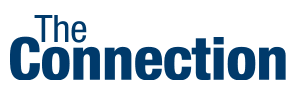
There’s a lot of chatter these days around the virtual water cooler about the Great Check Out! It seems that the Great Recession of 2006, which became the Great Resignation in 2021, has now morphed into The Great Check Out. According to Gallup, after a decade of steady increases, global employee engagement in 2020 dropped to 20%. Not surprisingly, the intensity of those covert am I working to live or living to work’ instant messages and their related angst, gets stronger when the conversations circle around the edge of our new reality. – That reality being, the deep and painful acceptance of the possibility that for the foreseeable future:
- Remote work is all there is really going to be!
- Hybrid if at all is way down the road and will be far more complicated than initially envisioned!
- Maintaining and establishing relationships at work is going to be really hard!
For me, it’s really hard because I’m a social being and love not just having lunch with colleagues, but also innovating in the hallway or getting together in person in a conference room to brainstorm. Whether it’s using a whiteboard or, god-forbid, a paper pad board ideating about what is or isn’t working or what new skills we need, or how we can reshape the competitive jungle is my idea of a fine day. Though I try, even after all this time, I haven’t yet mastered how to do that via Webex or Zoom.
My sense is that it’s more than just wanting more meaning, or autonomy or control over my work lives it’s also about trust. To paraphrase Dr. Frances Frei, Professor of Technical Operations Management at Harvard Business School, who helped UBER when they went through their crisis of leadership a few years back, TRUST is a little WOBBLY these days!

As she shared in a 2018 TEDTalk, real trust requires the symbiotic coming together of one’s logic, empathy, and authenticity. If any one aspect gets shaky, – trust is threatened. Click Here to check out her TEDTalk!
A quick google search for ‘Building Trust in the Workplace’ shows 310 million hits from tips to solutions, webinars to exercises. Many are useful ideas but miss the bigger questions, which are:
- How do I measure trust?
- How do I know if I am making progress in building a safe, trust-based environment?
This is especially critical whilst working remotely or mostly remotely but even more challenging if one is leading or orchestrating a cross-functional team. I first started worrying about the challenges of cross-functional trust-building early in 2017. Luckily, I had the opportunity to work with Dana De Nault, Psy.D., an Organizational & Leadership Psychologist, who helped me think differently about the challenge. Based on his guidance and the elements above, we were able in pretty short order to build a safe, trust-based environment that empowered the team in innovatively addressing some of the really tough systemic issues we and ultimately the organization was facing.
Based on that amazing experience and my work since then, here’s my suggestion, which is to experiment with my TRUST INDEX. It’s a collection of leading indicators designed to help with measuring various aspects of orchestrating remote meetings that I have found to be highly correlated with creating safe trust-based environments that in turn empowers teams, especially cross-functional ones.

TRUST INDEX Part I: Is Everybody Present and mindful? (what we call in Canada Bright Eyed and Bushy Tailed!!!)
- What’s the percentage of participants with video cameras are on, Instant Messaging off with minimal multitasking going on?
- Is the meeting organizer, facilitating or orchestrating a defined outcome? (e.g. using Webex’s Slido to break the ice or ask polling questions or other enhanced Webex tools like annotation)
- What’s happening with participants’ body language (e.g. how many are looking elsewhere, have folded their arms, torso’s twisted, or are leaning back in their chairs)

TRUST INDEX Part II: Is Everybody Engaged?
- Is there an agreed-upon shared social contract as to how team engagement will look that can be renegotiated as needed?
- Is authentic, transparent, and high-quality dialogue happening? (if the answer to the “Are there any questions?” is crickets, then there is a high probability that trust is not where it needs to be.
- Is there understanding and empathy or is there blaming being demonstrated?
- To what degree are issues being brought to the table to be discussed or is that all happening ‘offline’?

TRUST INDEX Part III: Is Everybody Working Towards Being More Agile and Adaptive?
- How are the team members positioning themselves relative to the greater good or purpose? (watch for only tribal thinking at the individual, team, function or group levels)
- Is a regular feedback mechanism and/or lessons learned time embedded (i.e. What’s the team’s learning dynamic?
- Is innovative thinking, and embracing risk proactively encouraged or discouraged?
If you’d like to test my theory, Click Here and download my Meeting Climate Trust Index Profile and use it to start testing the meeting climate for some of the cross-functional meetings you attend. Let me know what you find out! In my next article, I’ll talk about some of the specifics you can engage in to improve your scores. If you’d like to chat further feel free to reach out via gclemson@globalinkage.net.


Be the first to comment